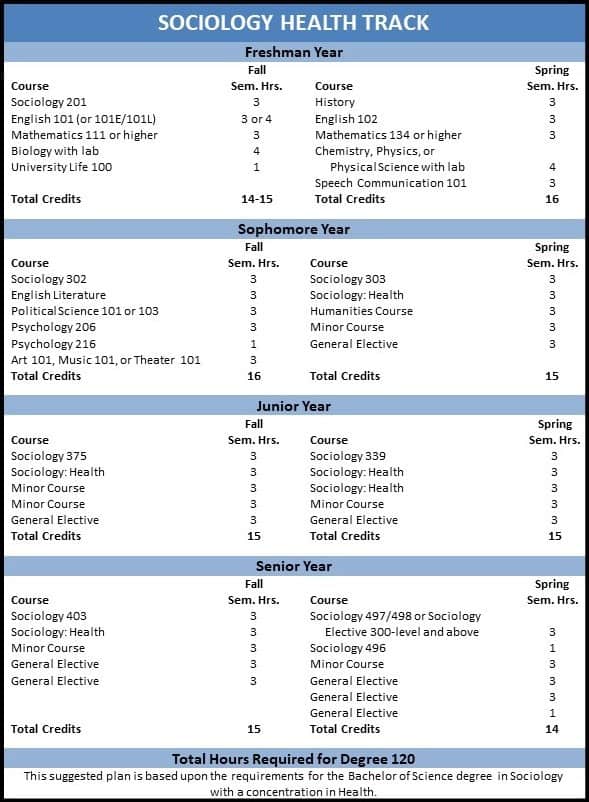SOCIOLOGY MAJOR
Health Track
Students interested in health-related issues in society, such as health disparities across demographic groups or the impact of social policy on healthcare and health outcomes, should consider following the health track in sociology. This track prepares students for a variety of jobs within healthcare settings, such as healthcare social workers, community health educators, and substance abuse counselors. Students may also pursue advanced degrees in this field to expand their career opportunities.
A major in Sociology with a Health focus requires the following:
Six Core courses:
201 – Introduction to Sociology
302 – Social Research Methods
303 – Social Statistics and Data Analysis
339 – Sociological Theory
403 – Survey Methodology
496 – Sociology Capstone Experience
Six Health-related courses:
375 – Society, Health, and Medicine (Required)
Three elective courses selected from:
334 – Population and Society
344 – Violence in Society
347 – Alcohol, Drugs and Society
376 – Social Perspectives on Mental Health and Illness
381 – Sports in Society: Problems and Potentials
387 – Death and Dying
388 – Disasters and Extreme Events
Two elective courses selected from:
310 – Race and Society
311 – Economic Inequality
315 – Gender and Society
327 – Aging and Later Life
One additional sociology elective course above the 299 level
498 – Sociology Internship is a recommended, but optional, elective.
Minor or Collateral in Sociology
A minor requires 18 hours, including Sociology 201.
A collateral requires 12 hours, including Sociology 201.
No more than six hours in either the minor or collateral can be earned from courses below the 300 level.
